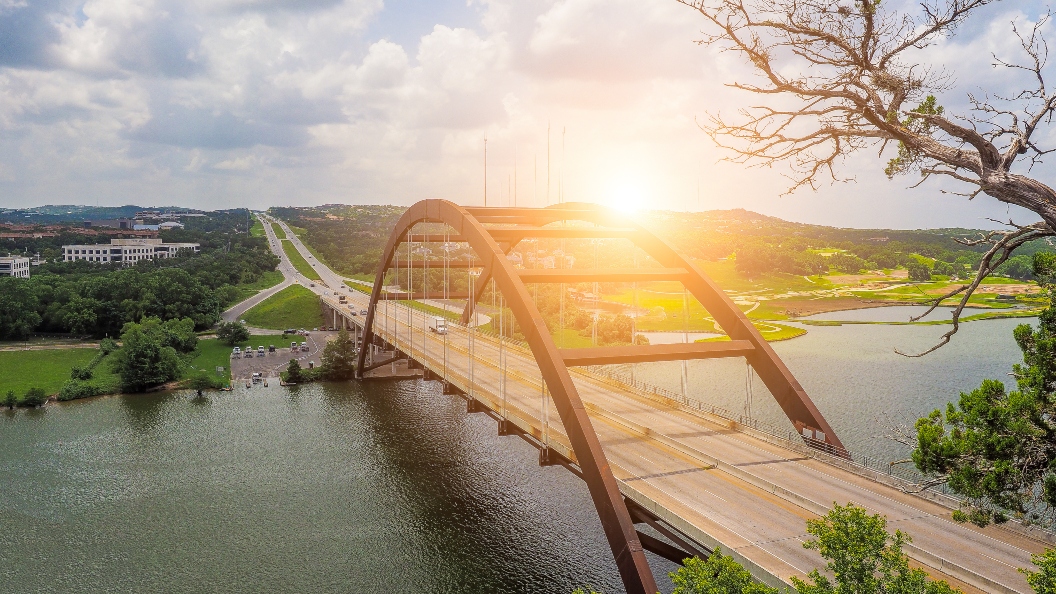Environmental activism in Central Texas is essential to conserve its biodiversity.
By Darby Kendall

Central Texas is home to more than just friendly neighbors, fantastic food and beautiful views. Due to its unique placement in the state, the area is also a biodiversity hotspot. Seven different ecoregions all come together on the Edwards Plateau, creating an environment of unmatched biodiversity deep in the heart of Texas.
Unfortunately, habitat destruction, climate change, pollution of surface water and threats to underground water from oil and gas-related projects like the Permian Highway Pipeline has jeopardized this diversity. Texans like Rae “Purly” Gates, co-founder and chief instigator at Clean Energy Now Texas (CENT), don’t take the threat to natural resources lightly, choosing to volunteer their time to climate justice and environmental activism.
Still Fighting for Justice
“When the [Permian Highway] Pipeline showed up with the proposed route that was a mile and a half from my cabin door, I got very involved. Our community has a lot of aging hippies like me in it…a lot of us were former activists in our 20s and 30s,” Gates says. “We were able to organize meetings; we were able to get together and stay in communication about what was going on.”
Though Gates and her neighbors throughout Central Texas put up a public fight against the pipeline for over a year, the line is now in full service as of January 2021. The outcome of their battle wasn’t ideal. But it did bring awareness to the issue of environmental protection to many Texans.
Katherine Romans, executive director of Hill Country Alliance, a nonprofit organization that works to preserve the natural resources and heritage of Central Texas, has seen communities gain a new environmental awareness.
“When the Permian Highway Pipeline was coming in, communities were seeing that the process is so slanted towards the oil and gas companies having this blank check to basically design their pipelines in a black box and not involve any community participation. Any landowner involvement. That has elevated the need for changes to the way pipelines are routed within the legislature,” she says. “We’re hopeful that this is going to have started the conversation.”
Conversations about Environmental Justice
For many, the conversation around climate justice is just beginning to ramp up as time runs out to reverse, or even slow, climate change. There is still much to fight for when it comes to the environment. Texans in particular are in a unique position to pressure representatives who are historically backed by the oil industry. A main focus for CENT is putting pressure on The Railroad Commission of Texas. (The inaptly named agency that regulates the oil and gas industry in the state.)
“The Railroad Commission basically has been one of our prime targets for action. The Railroad Commission does not do its job to protect public health and the environment during the construction of pipelines and other infrastructure,” says Gates. “Oil and gas will not stop without pressure. We have to change the laws.”
Holding elected officials accountable for accurately representing their constituents and local interests in clean energy is an essential step toward environmental protections in our state.
“Increasingly, elected officials and community leaders at all different levels of government are seeing the need to put community values and community resources first,” says Romans. “As we have more folks moving to our state, our population is growing. Communities just want to have more of a say on where that infrastructure is routed. How it impacts their local natural resources.”
Educate Yourself
The approach to attending town hall meetings and in-person protests has shifted due to the pandemic. So Gates suggests taking this time to educate yourself on the issues and attend virtual events.
“The pandemic has radically changed, globally changed the way protest is being held,” Gates says. “Since the pandemic, there have been a lot of new ways that we’ve been protesting. CENT organized a week of action, the last week of July…and it was all done online until the final event on Saturday. We had petitions that people could sign; we had phone numbers of legislators with sample scripts for calling to your representative that week.”
Now is an ideal time to reach out to representatives. The Texas Legislature is in session through the end of May. With sessions occurring only every other year in Texas, these next couple of months are crucial for environmental action on the legislative level.
Contacting government officials can seem a daunting task. However, Romans emphasizes that you have to make your voice heard and occasionally be a bit of a troublemaker in order to protect the planet.
“I feel like when you know that what you are fighting for is right, you have to be willing to make a little bit of trouble…and stand up to an industry that’s typically been given so much free rein to run roughshod over small communities and individual landowners,” she says. “I feel like it’s critical…to take risks and do what needs to be done to make your voice heard. We won’t have changes without that.”
HOW TO START THE CONVO
Do your research. Look locally. Find a local environmental nonprofit whose mission you agree with and reach out. See what kind of volunteer efforts they need and offer your time to benefit their work.
Educate yourself. Use the plethora of online resources available to learn what environmental threats may be occurring in your area, as well as other pipelines and oil-centric projects arising that need national attention.
Contact your representative. From the city council members to the state and national senators that represent you, be vocal about your interests in climate justice. Don’t be afraid to cause a little trouble.

